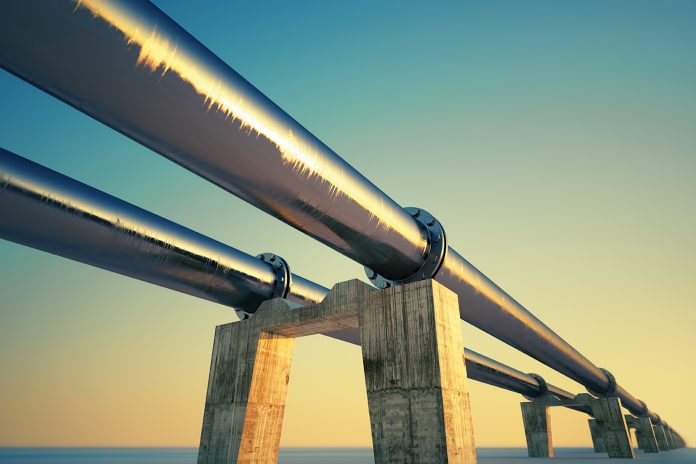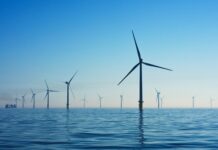
Pipelines are lifelines! The U.S. Energy Information Administration announced that the U.S. has set yet another new record for proved reserves of both crude oil and natural gas. “Proved reserves” are those volumes that are believed to be recoverable in the future from known reservoirs under current economic and technological conditions. Crude oil reserves now stand at 43.8 billion barrels; natural gas reserves stand at 504.5 trillion cubic feet. Those numbers are 12% and 9%, respectively, over last year’s record numbers.
September was the first full month since 1949 (when government records for these statistics first began) for the U.S. to be a net exporter of crude oil and petroleum products. We are very close to becoming a net exporter on a continuous basis — an achievement every U.S. president since Richard Nixon has specifically declared to be an essential strategic objective for our national security. That was always political rhetoric; it has now become a physical reality.
Cause for celebration? Cause for relief that we are becoming energy independent, no longer held hostage by the volatile geopolitics of the world? Cause for gratitude that we live in a country blessed with abundant natural resources and the freedom of entrepreneurialism and capitalism that encourages and rewards ingenuity and innovation?
If one were to base his conclusion on a survey of news articles and opinion columns in the New York Times and Washington Post or from the incessant talking heads on CNN, instead of celebration, relief and gratitude, the only politically correct responses to news of our ever-increasing reserves of crude oil and natural gas would be panic, depression and economic, if not political revolution.
Those who believe climate change is an “existential threat” (which, by the way, means they believe climate change is a threat to our very existence — i.e., the end of civilization) have oil and gas clearly in their crosshairs and will seemingly stop at nothing to remove these essential resources from our economic equation. Our message of Pipelines are lifelines will always conflict with their ideology.
Their Luddite strategies (the “Luddites” were English textile workers who protested the advent of textile machinery at the beginning of the Industrial Revolution by breaking the new equipment they feared would put them out of work) include a mass effort to stop the drilling of new oil and gas wells and access to our limitless reserves under the catchy slogan, “Keep It In the Ground.”
Fortunately, one of the principal reasons for the United States’ success in the oil and gas industry — the private ownership of our minerals — is also one of the principal reasons climate change protesters have largely failed to “keep it in the ground.” Private mineral owners think more rationally than your average protester. In fact, the only places where these protesters have gained any traction is where the government owns the minerals. Any lesson you would like to draw from that simple comparison?
The next battleground climate change protesters have chosen, in their all-out effort to artificially create a world in their own image, is to shut off the ability to transport the oil and gas they have been unable to keep in the ground. In other words, if they can’t stop the production, then they’ll make it so that production is stranded on location and has no way to get to the marketplace. Since oil can be transported by truck from the production site, this particular strategy typically pertains only to natural gas, which has to be put into a pipeline immediately upon production because there’s no good way to store it onsite or to transport it any other way.
This strategy of protesting new pipelines came into its own during the widely-publicized Keystone XL pipeline, which was to carry heavy oil from the oil sands in Northern Alberta to the refineries along the Texas Gulf Coast. Despite the fact that the XL pipeline was a twin to the already-existing Keystone pipeline, that similar pipelines crossing the U.S.-Canada border were approved without objection on many previous occasions, and that the alleged concern about the XL crossing the Ogallala aquifer in Nebraska was being raised by Nebraskans living in a state already looking like a thousand spider webs from the existing pipelines crisscrossing the state, the protesters decided they were going to use this particular pipeline as their line in the sand. Ten years later, it still hasn’t been built.
Pipeline protesters were so encouraged by their success in delaying the Keystone XL pipeline they have taken their act on tour, and now regularly appear at locations where new pipelines are being proposed in an effort to shut down the only realistic way to transport natural gas to market. Even fashionable politicians are getting into the act. New York Governor Andrew Cuomo has not only banned hydraulic fracturing statewide in New York (depriving New York mineral owners sitting atop the Marcellus shale from enjoying the same economic opportunities as their Pennsylvania counterparts), but he has also stopped the construction of any new pipelines carrying natural gas from other states to New Yorkers desperately in need of the energy and electricity it can provide. Cuomo’s contrived interference resulted in the tragically ironic scene in 2017, when New York chose to buy the natural gas it needed from a Russian tanker docked in Boston Harbor, rather than from their neighbors in Pennsylvania.
Other anti-market, anti-consumer policies being adopted by local governments include passing ordinances banning natural gas in all new construction. It’s not surprising, of course, that this trend started in California. Berkeley, San Jose, Mountain View, Santa Rosa and Brisbane are some of the dozen cities in California that have already enacted these laws. Other U.S. cities from Brookline, Massachusetts to Seattle, Washington have joined this parade.
Several years ago, climate change protesters clamored for Americans to switch from coal to natural gas to fuel our power plants, asserting that natural gas is much cleaner and would be the perfect “bridge” fuel to whatever the next innovation might provide. However, now that it has become clear that innovation has blessed us with a seemingly endless supply of natural gas, those same protesters no longer have any patience for it.Pipelines are lifelines! American affluence, and the leisure it affords, has created a class of protesters whose ability to protest at all is fueled by the energy they oppose. They demand a world that can’t exist without the energy they want to eliminate. Unfortunately, misery loves company, so the climate change protesters require that everyone should suffer along with them. Maybe instead of demanding that the rest of us keep it in the ground, they could just keep it to themselves.















[…] must be carried to specific locations, but first, the decision must be made on which mode of transport to utilize. With the Marcellus Shale offering 84 trillion cubic feet of natural gas and the Utica […]
[…] SHALE Magazine and teacher at the Texas Tech University School of Law, wrote an article called, “Pipelines are Economic Lifelines.” In it, he said, “Those who believe climate change is an “existential threat” (which, by […]